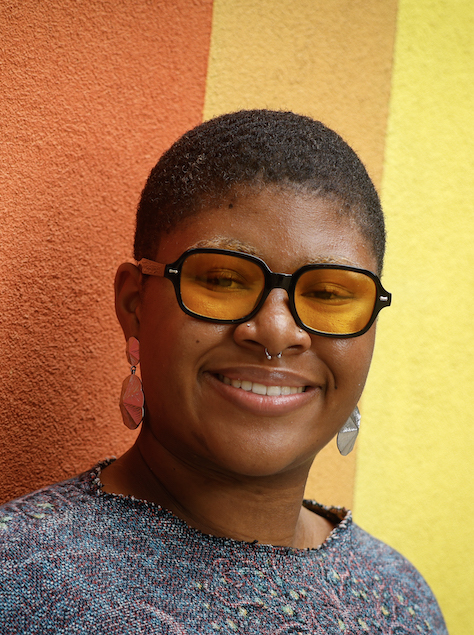
Switching majors from sociology to computer science can be daunting enough, but that wasn't the only challenge Toni Raggs faced in college. In this Their Own Words column, Toni talks through the obstacles they surmounted and shares advice for other students who might be facing the same ones.
- Her Own Words (HOW) series
As a queer, Black, low-income student pursuing a degree in STEM, my journey in higher education has been filled with unique challenges. I knew from the beginning that the road ahead would have obstacles, but I also understood the importance of resilience, determination, and the power of education in transforming my future. This column reflects on the difficulties I have faced and the encouraging advice I have received.
First, the financial strain of higher education was a significant barrier that I needed to overcome. College tuition, fees, and expenses seemed insurmountable given my family’s low-income background. I took the initiative to research scholarships, grants, and financial aid programs that could help alleviate this burden. Thankfully, the UIC College of Engineering offers emergency grants to assist students with financial expenses. I know that my degree is an investment in my future and career, so I am willing to put in the time and effort.
Another challenge I faced was the lack of representation and role models in the STEM field. As a queer Black student, I often was the only person with my background and experiences in my classes. This isolation made it difficult for me to connect with others, causing me to feel like I didn’t belong. To combat this, I sought out guidance and networking opportunities through Break Through Tech Chicago, which embraces diversity in STEM. In Break Through Tech Chicago’s section of the CS 111 course, I was able to engage with individuals who shared my identity and experiences, and I discovered the support I needed to continue pushing forward.
While at UIC, I made a leap in major from sociology to computer science. I felt the weight of starting from scratch in a field that seemed to operate on an entirely different plane of logic. The abstract theories and critical-thinking skills I had honed in my previous major felt distant and at times useless as I struggled to wrap my head around the syntax and structure of programming languages. I spent hours upon hours debugging lines of code, and I couldn’t help but feel disheartened when a single missing character rendered my hard work futile. The pressure to catch up with my peers, who seemed to navigate this digital world with ease, only compounded my sense of inadequacy. I wondered if I had made the right decision in changing majors, but I knew that if I persevered, a world of possibilities would open for me.
I have faced stereotypes and prejudices, too. From microaggressions to blatant discrimination, these negative experiences have threatened my motivation and fueled my impostor syndrome. However, I chose to turn these experiences into learning opportunities, using them to strengthen my resolve and enhance my determination to succeed. I also made it a priority to educate my peers about the importance of inclusion and diverse perspectives in STEM fields.
To others facing similar circumstances, I offer the following advice:
- Seek out resources: Don’t be afraid to ask for help or take advantage of resources available to you. Scholarships, financial aid programs, and mentorship opportunities can help mitigate financial and social obstacles.
- Create a support network: Reach out to others who share your identities and experiences, both inside and outside of your academic area. Encouragement, counsel, and a sense of belonging can all come from a solid support network.
- Maintain concentration on your objectives: It is critical to maintain focus on your goals despite setbacks. Remember why you picked a STEM degree and utilize that passion to push through difficulties. Do not feel pressured by time.
- Be a change agent: Use your voice and experiences to effect good change in your academic community. You can aid future generations of diverse kids by lobbying for more inclusive and equitable policies and practices.
All in all, challenges are significant, but not insurmountable. By seeking out resources, building a support network, staying focused on goals, and advocating for change, I have been able to overcome obstacles and forge a path toward success.
